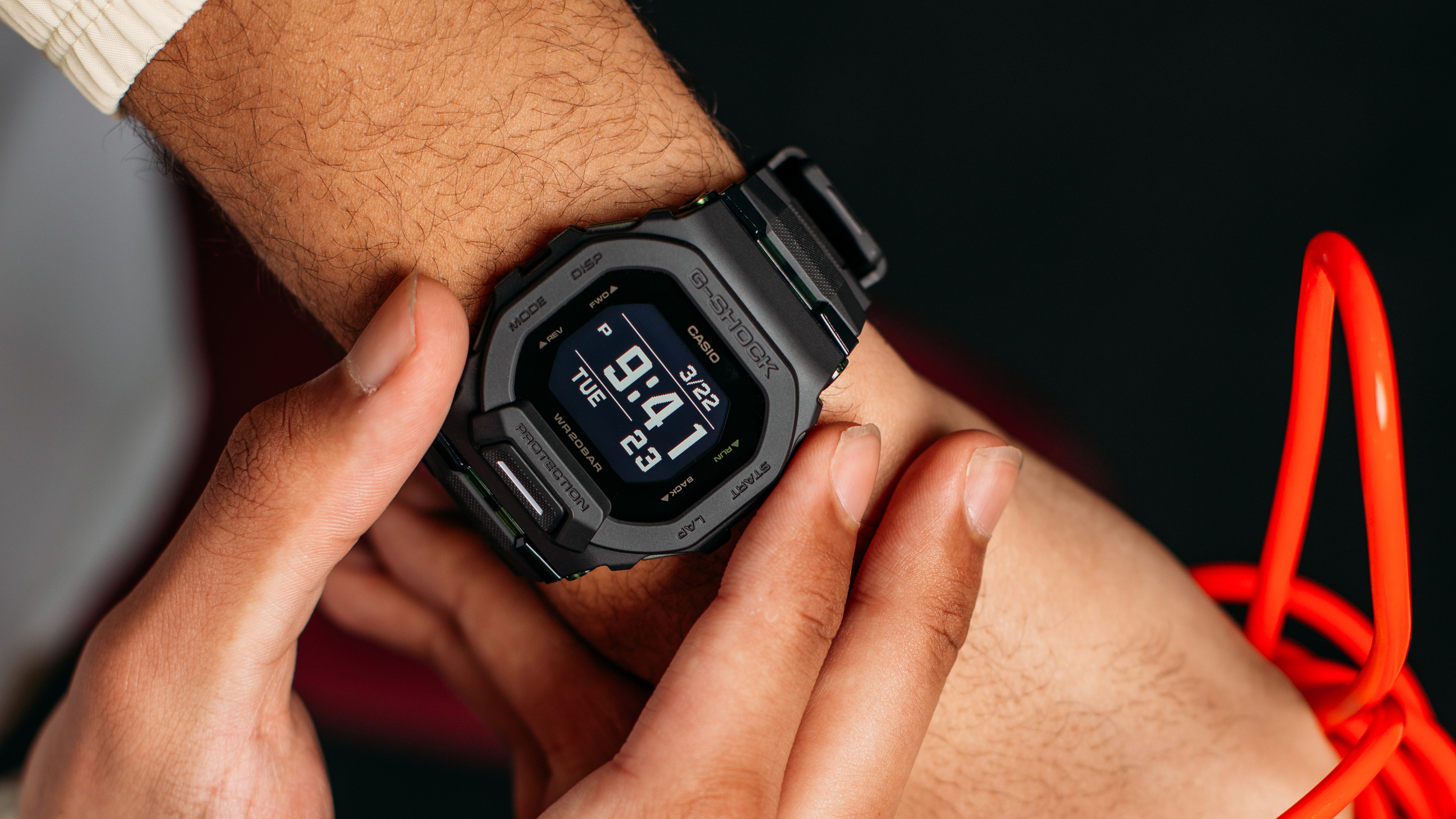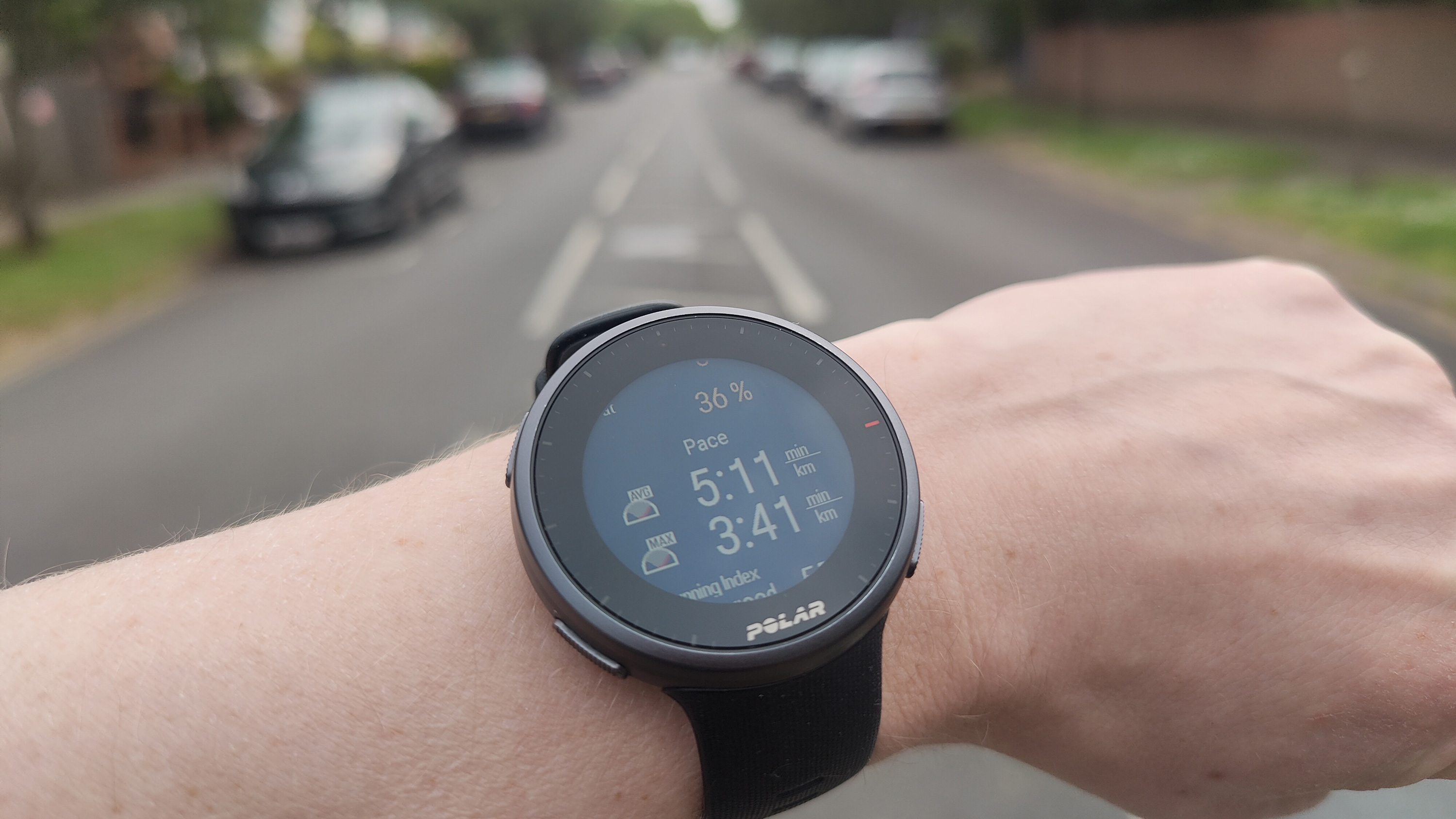Forget Apple Watch Ultra? Why a G-Shock might be the outdoors watch to buy
G-Shock is aiming to take on Apple and Garmin watches

Sign up for breaking news, reviews, opinion, top tech deals, and more.
You are now subscribed
Your newsletter sign-up was successful
Just when you thought digital watches were a thing of the past, along comes the G-Shock resurgence. When you think of the best running watches, you typically think of a Garmin, a Coros, or even the new Apple Watch Ultra. However, while you might choose an analog or digital watch for style points, some people are veering away from smartwatches, and choosing to go for a sports watch with fewer smart features.
G-Shock’s parent company Casio is having a good year right now, with one earnings report stating that sales are up a massive 116% compared to last year. Casio’s digital watches have never been more popular – and it seems that many people aren’t choosing to opt for a smartwatch as their daily companion.
And I can see why. I love smartwatches, and I've almost always got one on my wrist (after all, testing them is a big part of my job); but occasionally, I’ve felt the creeping presence of constant connectivity in my life. It could be your watch's sleep-tracking features making you increasingly anxious about our nighttime schedule, or it could be that you feel as though your smartwatch is always keeping an eye on you, monitoring your exercise habits and broadcasting the information to your friends on Strava.
It might just be that you spend a lot of your day looking at screens, and resent getting emails, WhatsApp messages and other notifications on your wrist too. Analog and digital watches offer an escape from all of that, but some still contain tools to help you collect information about your workouts.

The G-Shock G-SQUAD range offers Bluetooth connectivity, and displays your distance, speed, and cadence on the digital watch face. The G-LIDE models, on the other hand, offer information for surfers about tides and sunlight hours for beaches all around the world. This is enough to be useful, giving you the sports-specific information you want, while not saddling you with constant connectivity.
Hybrid smartwatch makers Withings takes a similar approach with its Withings Scanwatch Horizon. It doesn’t share much design ecology with G-Shock, which opts for a rugged approach more in line with the best Garmin watches than with pared-back analog timepieces, but it offers a tiny, unobtrusive screen embedded in an analog face. However, it’s just as expensive as a regular smartwatch, while G-Shocks (unless they happen to be a limited edition) are often quite reasonably priced.
The freedom that comes with not being constantly connected can, sometimes, be liberating (at least for this very connected tech writer). Although the G-SQUAD’s limited information will mean it can never replace something like the Garmin Enduro 2 during training for a big event, It can be enjoyable to feel more 'in the moment' when I'm on maintenance runs. With no splits to worry about, on Saturday morning runs by a local river I feel empowered to stop and stretch when I hit a beauty spot, working out the kinks of a week spent sitting at my desk. I wouldn’t be doing that if I thought people on my Strava were peeping on my times.
Sign up for breaking news, reviews, opinion, top tech deals, and more.
With lots of early Black Friday deals already up for grabs ahead of Black Friday itself, now is a good time to be looking for a new watch of any variety, and for fitness gear in general. And with some G-SQUAD watches down to under $120 or £90, you could snap up a device that’s cheaper and more stylish than most smartwatches on the market. They’ll last you almost a decade, will still give you sports-specific information, and will offer you a brief respite from a life of constant connection. Sounds like a win-win to us.

Matt is TechRadar's expert on all things fitness, wellness and wearable tech.
A former staffer at Men's Health, he holds a Master's Degree in journalism from Cardiff and has written for brands like Runner's World, Women's Health, Men's Fitness, LiveScience and Fit&Well on everything fitness tech, exercise, nutrition and mental wellbeing.
Matt's a keen runner, ex-kickboxer, not averse to the odd yoga flow, and insists everyone should stretch every morning. When he’s not training or writing about health and fitness, he can be found reading doorstop-thick fantasy books with lots of fictional maps in them.